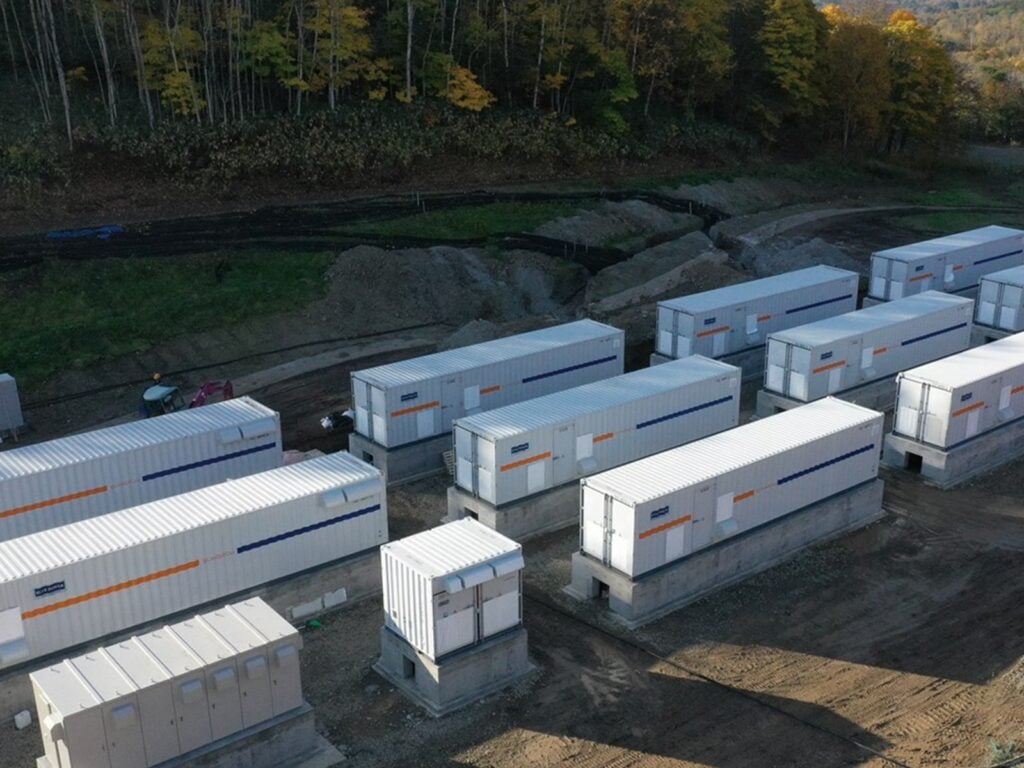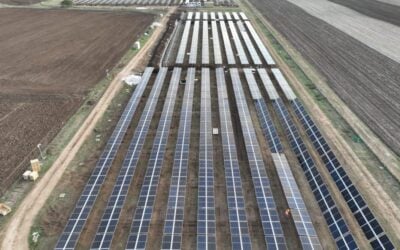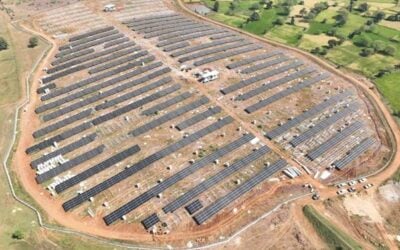
Energy storage projects will be eligible to take part in competitive capacity auctions for low-carbon power set to be launched this month by the Japanese government.
The new ‘Long-term Decarbonization Power Source Auction’ hosted by the Organisation for Cross-Regional Coordination of Transmission Operators (OCCTO) is essentially a capacity market for low-carbon energy resources.
Enjoy 12 months of exclusive analysis
- Regular insight and analysis of the industry’s biggest developments
- In-depth interviews with the industry’s leading figures
- Annual digital subscription to the PV Tech Power journal
- Discounts on Solar Media’s portfolio of events, in-person and virtual
Japan-based energy market consultancy Shulman Advisory wrote on its corporate blog last week (12 January) that power generators will bid using specific bidding units per kilowatt per year to contract with retail electricity providers to sell them power over 20-year terms from new-build capacity.
This, Shulman Advisory said, would give successful generators “a stable long-term fixed revenue for their planned projects”.
The auctions begin at what the consultancy said was a fairly modest initial level set by OCCTO, with 4GW up for grabs. However, that nationwide target capacity will be reassessed based on expected supply needs in the future, and the government Ministry of Economy, Trade and Industry (METI) will determine the scale of future rounds, taking into account both auction results and trends in technology innovation.
Eligible resources are: renewable energy (solar PV, offshore and onshore wind), battery energy storage system (BESS), hydroelectric power, geothermal, nuclear and other low-carbon thermal power e.g., hydrogen, ammonia, biomass, LNG. Bids are expected to come from projects with a single source of power, with the exception of aggregated wind and solar, which can be included in combined bids.
According to an official guidance document issued by OCCTO (in Japanese), energy storage resources including batteries and pumped hydro energy storage (PHES) will be limited to 1GW in the initial auction.
Meanwhile energy storage developers will be given a timeframe of four years from award of contracts to begin delivery, with other technologies given different expected schedules based on lead times, for example for solar PV, it is the last day of the fiscal year that falls five years after signing, unless changes in laws and ordinances make a start three years on feasible.
‘Gradual growth’ for capacity market opportunity
With the target being at its modest starting level, significant capacity will be available for future auctions, and that could also have a bearing on what sort of technologies we see entering them, Shulman Advisory noted.
Therefore, “the market’s expansion will be gradual”, the consultancy said.
The bid submission window will be open between 23 January and 30 January, with results expected to be announced three months after the window closes.
Writing in August 2023 on its corporate blog, legal firm White & Case said it anticipated the new capacity market to have a “significant impact” on the country’s battery storage market. BESS facilities must be standalone and not colocated with another power source.
White & Case noted that participants must be either based domestically in Japan, or part of a Special Purpose Vehicle (SPV) consortium incorporating a domestic entity to which ownership will transfer within a year of bid award.
The award of contracts for 20-year fixed revenues would, White & Case said, “have significant impact on the financials and the business model of a BESS project in Japan”.
The capacity auctions – which Shulman Advisory pointed out are separate to and should not be confused with Japan’s capacity market unit auctions for existing resources of 1MW or more for single-year delivery periods – look set to provide another important revenue stream to the stack that can be earned in Japan’s energy market by BESS assets.
As has been widely covered by media including Energy-Storage.news, Japan’s battery storage market has been attracting investment over the past couple of years from domestic and international entities, albeit at a growth rate which might also be called ‘modest’ compared to some other national markets.
Battery assets are now allowed to trade energy in Japan’s wholesale markets and the first two projects to do so joined the Japan Electric Power Exchange (JEPX) spot market in mid-2023 through developer Pacifico Energy. Meanwhile, ancillary services opportunities are also opening up as the energy market’s deregulation begun in 2016 gathers pace and the Japanese grid’s patchwork of 10 separate regional operators are working to alleviate the curtailment of wind and solar renewables.
In a recent Energy-Storage.news Premium interview, Franck Bernard, the energy storage head of developer Gurin Energy said that the Japanese BESS market is ready for scale-up, with the company planning to begin building a 500MW/2,000MWh project in the country in 2026.
Read more of Energy-Storage.news’ coverage of Japan.
Energy-Storage.news’ publisher Solar Media will host the 2nd Energy Storage Summit Asia, 9-10 July 2024 in Singapore. The event will help give clarity on this nascent, yet quickly growing market, bringing together a community of credible independent generators, policymakers, banks, funds, off-takers and technology providers. For more information, go to the website.






